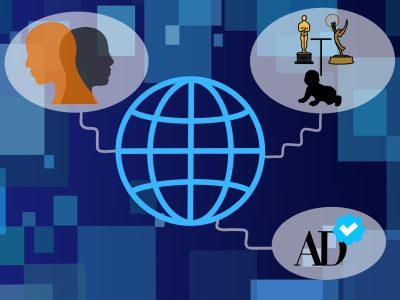A nepotism (or “nepo”) baby usually refers to a child of someone influential in the realm of Hollywood. Having a family member with superstar status unsurprisingly gives many of these new young celebrities a head start in the entertainment industry.

The concept has garnered attention since New York magazine’s series “The Year of the Nepo Baby,” was published last December. It featured celebrities like Lily Collins, Iris and Maude Apatow, Maya Hawke and Dakota Johnson with their heads photoshopped onto a baby’s body.
Instantaneously, the series sparked a debate about the advantages nepotism babies have to succeed in the industry compared to those without family legacies.
But the public remains largely divided in their stance against the children of celebrities — while some praise them, others attack them for their undeserved success.
Ben Stiller, Benedict Cumberbatch, Dakota Johnson, Zoe Kravitz, Bella Hadid, Gracie Abrams — the list goes on. Not only do these celebrities have a leg up in the competition with their abundance of wealth and private connections, they’re also able to get jobs and offers just like that.
Being born with a silver spoon in your mouth — or to parents with a big name — undoubtedly makes the path to stardom and success all the more achievable.
The same concept of nepotism is mirrored through college legacies. Take the University of Southern California, for example, and its “Trojan Transfer” program. The project for a while invited a handful of that year’s rejected applicants to enroll at USC their sophomore year — not always on merit, but often because they had family members who’d attended the school.
There’s no two ways about it, they got their acceptance largely because of a last name.
Imagine all those people anxiously awaiting their fate in the room of a casting call. People who might be paying a high price and traveling many miles all to pursue their dream.
Now imagine someone just waltzing in past all those people with their super famous last name and every convenience in the world. Most children dream of being on Disney Channel or becoming a pop star, but these aspirations dissipate as they get older because of the competitive nature within the industry.
There is this idea that in order to achieve stardom, you need to be remarkably talented — but that lack of equality in the industry really calls to question how truly talented these nepo babies are.
It isn’t to say that all of these people don’t work for their roles or that they’re not good enough. Bella Hadid is a fantastic model, Miley Cyrus is a great singer and I love Kate Hudson in “Almost Famous.” But the industry needs a higher degree of fairness. These celebrity children should be placed in the same audition rooms as everyone else.
True stars should not be remembered by their last name but by their talent. Still, the playing field is not level. It never was.





















































































































JanMike9 • Feb 27, 2023 at 9:40 am
Nepotism happens in all walks of life, and what parent wouldn’t offer their child an advantage to succeed in a career if they could? Seems to me, nepotism is much worse when ordinary folk like me are shut out for higher positions in non-Hollywood careers–like when the idiot progeny of a store or restaurant manager/owner gets promoted and is totally clueless or apathetic about the job handed to them. They linger on, even if they are a detriment to their profession.
The world of entertainment would be diminished without actors/entertainers like Liza Minnelli, Carrie Fisher, Michael Douglas, Jane Fonda, etc. The majority of celebrities are not beneficiaries of nepotism. How does THAT happen?